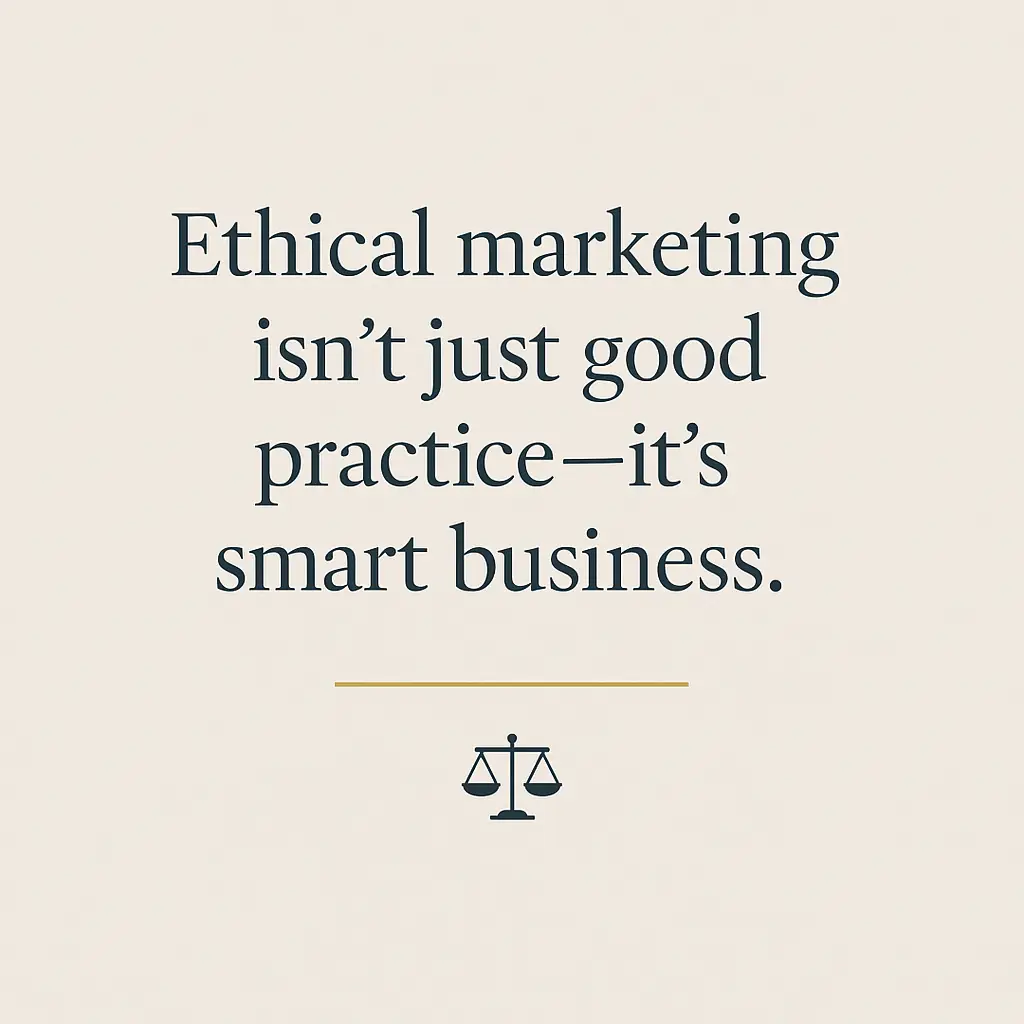Abstract
Marketing ethics refers to the principles and standards that define acceptable conduct in marketing practices. As consumers grow more conscious of environmental, social, and economic impacts, ethical marketing has moved from being a corporate responsibility to a competitive advantage. This article explores marketing from an ethical perspective, addressing its principles, common ethical dilemmas, frameworks, and best practices for businesses committed to balancing profit with purpose.
1. Introduction
Marketing has the power to shape consumer behavior, cultural norms, and societal values. While it can drive business growth, marketing also bears ethical responsibilities. Unethical marketing can lead to misinformation, exploitation, or social harm, whereas ethical marketing fosters trust, loyalty, and sustainable success.
As consumers and regulators increasingly scrutinize corporate behavior, businesses must integrate ethics into their marketing strategies to maintain credibility and fulfill their societal role.
2. Principles of Ethical Marketing
Ethical marketing is guided by principles that promote fairness, transparency, and respect for all stakeholders.
- Honesty: Provide truthful information about products and services.
- Transparency: Clearly communicate terms, pricing, and potential limitations.
- Respect for Privacy: Safeguard consumer data and honor privacy preferences.
- Fairness: Treat all consumers equitably, avoiding discrimination or exploitation.
- Social Responsibility: Consider the broader impact of marketing activities on society and the environment.
3. Common Ethical Issues in Marketing
| Issue | Explanation | Example |
|---|---|---|
| Misleading Advertising | Exaggerated or false claims that deceive consumers. | Weight loss products with unrealistic promises. |
| Greenwashing | Falsely promoting environmentally friendly practices. | A brand claiming sustainability without verified practices. |
| Exploitation of Vulnerable Groups | Targeting children, elderly, or financially insecure consumers unfairly. | High-interest payday loans marketed to low-income groups. |
| Data Privacy Violations | Collecting and using consumer data without consent. | Selling user data to third parties without disclosure. |
| Cultural Insensitivity | Using stereotypes or offensive messaging. | Campaigns that misrepresent or appropriate cultural elements. |
4. Ethical Frameworks in Marketing
Several ethical frameworks guide marketing decisions:
4.1. Utilitarian Approach
- Definition: Focuses on actions that result in the greatest good for the greatest number.
- Application: Ensuring marketing campaigns benefit both the business and its customers.
4.2. Rights-Based Approach
- Definition: Respects and protects the rights of all stakeholders.
- Application: Prioritizing data privacy and informed consent.
4.3. Fairness or Justice Approach
- Definition: Ensures equitable treatment and opportunities for all.
- Application: Avoiding discrimination in target marketing practices.
4.4. Common Good Approach
- Definition: Considers the well-being of society as a whole.
- Application: Supporting sustainable practices and social causes.
5. Benefits of Ethical Marketing
- Enhanced Brand Reputation
- Ethical practices build trust and strengthen public perception.
- Example: Patagonia’s dedication to environmental activism.
- Customer Loyalty
- Consumers are more likely to remain loyal to brands they perceive as ethical.
- Example: The Body Shop’s cruelty-free commitment attracts conscious consumers.
- Competitive Advantage
- Differentiates a brand in crowded markets.
- Example: Ben & Jerry’s focus on social justice and fair trade.
- Risk Mitigation
- Reduces legal and reputational risks associated with unethical behavior.
- Example: GDPR compliance to avoid fines and data breaches.
6. Ethical Marketing in Practice
6.1. Transparent Communication
- Avoid misleading claims.
- Provide full product details and clear terms.
6.2. Ethical Content Creation
- Use respectful language and accurate representations.
- Avoid stereotypes and offensive imagery.
6.3. Responsible Targeting
- Protect vulnerable consumers.
- Ensure advertising does not manipulate fears or insecurities.
6.4. Sustainable Practices
- Use eco-friendly materials and support fair labor practices.
- Promote responsible consumption.
6.5. Consumer Privacy Protection
- Collect data responsibly and provide opt-out options.
- Be transparent about how data is used.
7. Challenges in Ethical Marketing
- Profit vs. Ethics: Balancing profitability with ethical considerations.
- Global Variability: Navigating differing cultural and legal standards worldwide.
- Consumer Skepticism: Overcoming distrust caused by greenwashing and false claims.
8. Case Studies
- IKEA: Commits to sustainability through eco-friendly materials and social initiatives.
- TOMS Shoes: “One for One” model supports global giving.
- LEGO: Invests in sustainable materials and socially responsible messaging.
9. Conclusion
Ethical marketing is not merely an optional practice—it is a necessity in today’s conscious marketplace. Businesses that integrate ethics into their marketing strategies foster long-term trust, loyalty, and resilience. By prioritizing honesty, fairness, and social responsibility, companies can achieve both commercial success and meaningful impact.
10. References
- Kotler, P., & Keller, K. L. (2016). Marketing Management (15th Edition). Pearson.
- Crane, A., & Matten, D. (2016). Business Ethics (4th Edition). Oxford University Press.
- American Marketing Association. (2023). Ethical Guidelines in Marketing.
- European Commission. (2022). Guidance on Ethical Marketing Practices.
- Forbes Insights. (2023). Consumer Trust and Ethical Branding.

